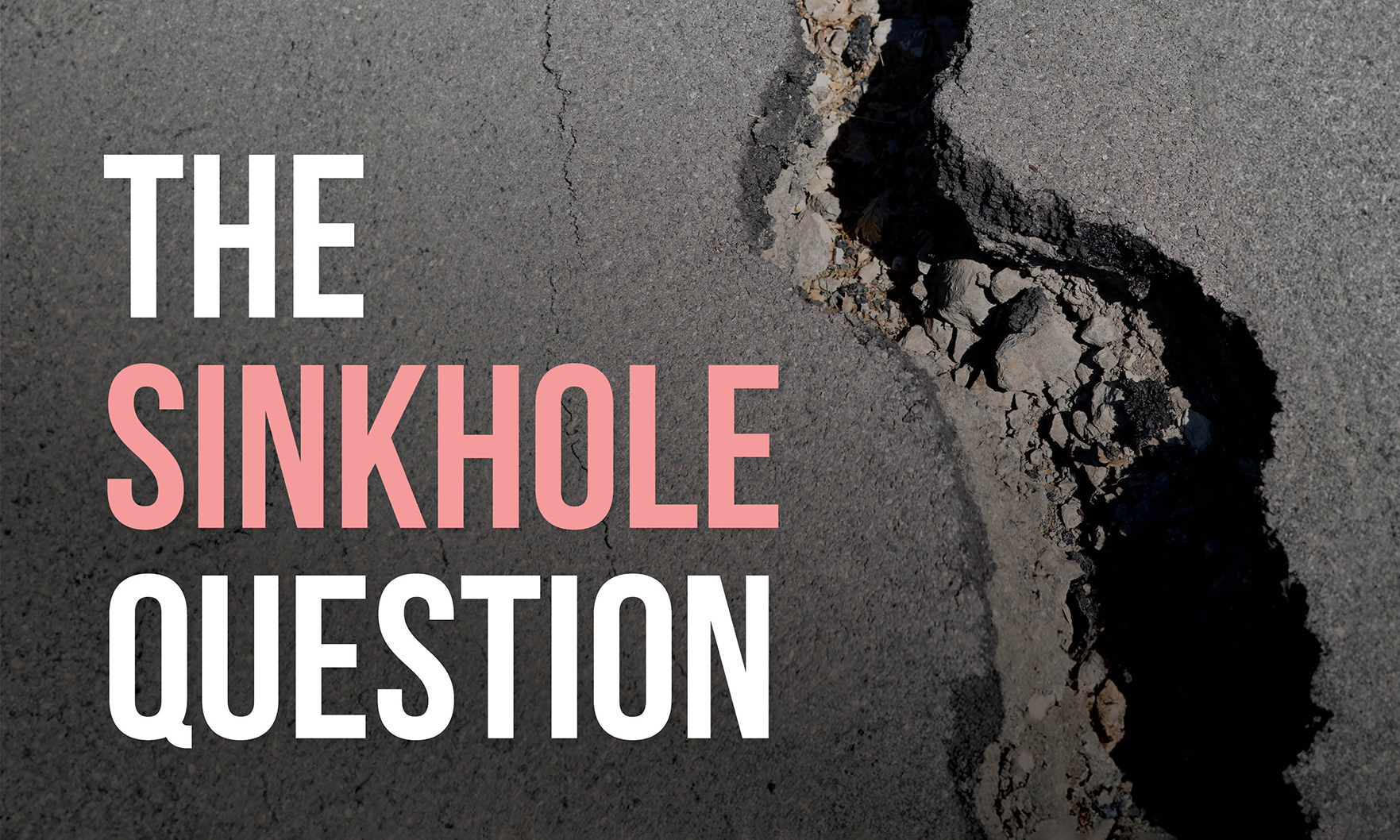Florida is known for a great many things: the sunny weather, beautiful landscapes, iconic attractions like the Magic Kingdom, the Everglades, the Kennedy Space Center, oranges and Florida Man. But like every state, Florida also has its share of risks and less attractive features, such as extreme weather, heat waves, alligators and yes, sinkholes.
Sinkholes are a known peril in Florida and can cause significant damage to homes — sometimes even total destruction. This doubtless leads some homeowners to wonder if their insurance policies will cover them in the case of sinkholes. Let’s dig into the impact sinkholes have on homeowners insurance in Florida, and what you can do to help lower your premiums.
What’s a sinkhole?
First, let’s establish what a sinkhole is. A sinkhole is a depression in the ground with no surface drainage, which means that water accumulating in the depression stays inside the sinkhole and drains into the subsurface. Sinkholes are common in what’s called “karst terrain,” which means the rocks beneath the surface can eventually be dissolved by groundwater moving through them.
Eventually, this dissolution can create underground caverns. When that underground space gets too large to support the land above, the sinkhole collapses — taking anything on that land with it, including homes.
Florida is particularly at risk for sinkholes because it’s heavy on karst terrain: a lot of Florida’s underground is made of limestone, which erodes fairly easily.
Impact on homeowners insurance
When insurance companies assess risk, they consider several factors, including the most common perils of having a home in a particular area. Much as with hurricanes, floods and other common occurrences in Florida, insurers must take the risk of sinkholes into account — the amount of damage a sinkhole can do to a home is considerable.
Florida’s insurance regulations on sinkholes
So is your Florida home covered in case of sinkholes? The answer is, “it depends.” While Florida law does require insurance companies to include coverage for “catastrophic ground cover collapse,” that doesn’t necessarily mean your policy covers sinkholes specifically. Catastrophic ground collapse refers to cases where the ground collapses suddenly and causes damage that renders the home uninhabitable.
Specifically, to qualify for “catastrophic ground cover collapse,” the top layer of soil must sink abruptly, with a visible depression in the ground, causing structural or foundational damage to the property. The property must then be condemned and evacuated. Not all sinkholes will meet this criteria, especially if they start small and gradually increase over time. Even if your home suffers damage, you might not be covered by your standard homeowners insurance policy.
However, Florida state regulations require insurance companies to provide insurance coverage for sinkholes as a separate endorsement. This coverage will protect your house and belongings should a sinkhole happen on your property — however, coverage remains something of a gray area, since not every sinkhole will damage a house directly, and sinkhole insurance doesn’t necessarily cover impact to the overall value of the property (such as a backyard with a giant sinkhole in it!)
In short, it’s best to carefully review your homeowners insurance policy to see what’s covered and consult with your insurer to get a clear picture of exactly what is and is not covered.
Lowering your Florida homeowners insurance premiums:
Homeowners insurance in Florida can be a considerable expense and having to purchase additional sinkhole insurance can increase those costs even more. So what can you do to help bring those premiums down a little? Fortunately, you have a number of options available.
Shop around. You don’t necessarily have to stick with your existing insurance company. Using online tools to compare quotes for various insurers can help you find the right policy for you, quite possibly at a better price. You can start by checking out some of Ross Martin’s stats from The Zebra listing which companies offer cheap Florida homeowners insurance.
Change your deductible. If you raise the deductible on your homeowners insurance, you’ll end up paying more out of pocket in the case of a claim, but your monthly premiums will be lower. This means taking a close look at your finances and judging whether or not you can afford to absorb a greater financial blow in case of disaster.
Take more safety measures. Installing safety features is good news for insurance companies because it decreases the amount of risk they take in underwriting your home. For instance, security systems, smoke detectors, storm windows and garage doors and fire-resistant materials can all make your home less vulnerable to various risks, which could result in discounts.
Bundle your policies. Many policyholders choose to bundle their home and auto insurance, which means getting a discount from most insurance carriers.
Improve your credit rating. One of the things insurance companies look at when assessing risk is credit rating. A higher credit rating is considered a sign of greater financial responsibility, which could translate to lower premiums on your homeowners insurance.

